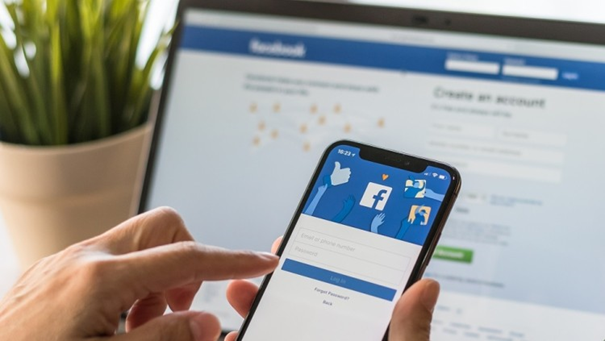In the digital age, social media platforms like Facebook have become integral parts of our daily lives, facilitating connections, sharing experiences, and fostering communities. However, the pervasive use of these platforms also brings forth security concerns, with hackers continuously devising new methods to infiltrate accounts and compromise user privacy. In this article, we delve into the intricate world of Facebook hacking, exploring the techniques used by malicious actors to gain unauthorized access to accounts and the steps users can take to protect themselves.
Understanding the Motives Behind Facebook Hacking
Before delving into the technical aspects of Facebook hacking, it’s essential to understand the motives driving such illicit activities. While some hackers may seek financial gain through identity theft or fraudulent schemes, others may aim to exploit personal information for blackmail, harassment, or manipulation. Additionally, political motives, such as spreading misinformation or influencing public opinion, have become increasingly prevalent in the realm of cyberattacks.

Regardless of the underlying motives, the repercussions of Facebook hacking can be severe, ranging from reputational damage and financial loss to emotional distress and compromised personal safety. As such, it’s crucial for users to remain vigilant and proactive in safeguarding their accounts against potential threats.
Common Techniques Used in Facebook Hacking
- Phishing Attacks: Phishing remains one of the most prevalent methods employed by hackers to gain unauthorized access to Facebook accounts. In a phishing attack, hackers create deceptive emails, messages, or websites designed to mimic legitimate entities, such as Facebook or trusted third parties. These fraudulent communications often prompt users to enter their login credentials or sensitive information, unwittingly handing them over to the attackers.
- Social Engineering: Social engineering tactics involve manipulating individuals into divulging confidential information or performing actions that compromise their security. Hackers may employ techniques such as pretexting, where they create a plausible pretext to deceive users into disclosing their Facebook login credentials or granting access to their accounts.
- Malware and Keyloggers: Malicious software, or malware, poses a significant threat to Facebook users, as it can infect devices and capture sensitive information, including login credentials. Keyloggers, a type of malware, record the keystrokes typed by users, allowing hackers to capture passwords and other confidential data without their knowledge.
- Password Guessing: Despite its simplicity, password guessing remains a surprisingly effective method for hackers to gain access to Facebook accounts. By leveraging information gleaned from social media profiles, public records, or previously compromised accounts, hackers attempt to guess users’ passwords or security questions to gain unauthorized entry.
- Session Hijacking: Session hijacking involves intercepting and taking control of an active session between a user and a website, such as Facebook. Hackers may exploit vulnerabilities in the communication channels or employ techniques like packet sniffing to capture session cookies, allowing them to masquerade as the legitimate user and access their account without requiring login credentials.
Protecting Yourself Against Facebook Hacking
While the techniques used by hackers may vary in complexity, there are several proactive measures users can take to enhance their account security and mitigate the risk of unauthorized access:
- Enable Two-Factor Authentication (2FA): Two-factor authentication adds an extra layer of security to your Facebook account by requiring verification from a secondary device or authentication method, such as a mobile phone or authenticator app. This additional step makes it significantly more difficult for hackers to gain access to your account, even if they possess your login credentials.
- Use Strong, Unique Passwords: Creating strong, unique passwords for your Facebook account is essential in preventing password guessing attacks. Avoid using easily guessable passwords or reusing passwords across multiple accounts, as this increases the likelihood of compromise. Consider using a reputable password manager to generate and store complex passwords securely.
- Exercise Caution with Links and Attachments: Be wary of unsolicited emails, messages, or links, especially those urging you to provide login credentials or sensitive information. Verify the authenticity of communication by checking the sender’s identity and ensuring that URLs redirect to legitimate websites. Avoid downloading attachments or clicking on suspicious links that could contain malware or lead to phishing pages.
- Regularly Update Security Software: Keep your devices and security software up to date with the latest patches and updates to mitigate the risk of malware infections and vulnerabilities. Install reputable antivirus software and enable real-time scanning to detect and remove malicious threats proactively.
- Monitor Account Activity: Regularly review your Facebook account activity and security settings to identify any unauthorized access or suspicious behavior. Enable notifications for login attempts and unrecognized devices to receive alerts about potential security incidents. If you notice any irregularities, take immediate action to secure your account and investigate the cause.

By implementing these proactive measures and remaining vigilant against potential threats, users can significantly reduce the risk of falling victim to Facebook hacking and protect their personal information and privacy online. Remember that cybersecurity is an ongoing effort that requires diligence and awareness to stay one step ahead of malicious actors.
Conclusion
Facebook hacking represents a persistent and evolving threat in the digital landscape, with hackers employing various techniques to compromise user accounts and exploit personal information. From phishing attacks and social engineering tactics to malware infections and password guessing, the methods used by malicious actors are diverse and adaptable.
However, by understanding the motives behind Facebook hacking and implementing proactive security measures, users can fortify their defenses and mitigate the risk of unauthorized access to their accounts. Through a combination of two-factor authentication, strong password practices, cautious online behavior, and regular security monitoring, individuals can safeguard their personal information and privacy in an increasingly interconnected world.
Ultimately, staying informed, remaining vigilant, and prioritizing security are crucial in the ongoing battle against Facebook hacking and cyber threats. By taking proactive steps to protect themselves and their accounts, users can navigate the digital landscape with confidence and peace of mind.